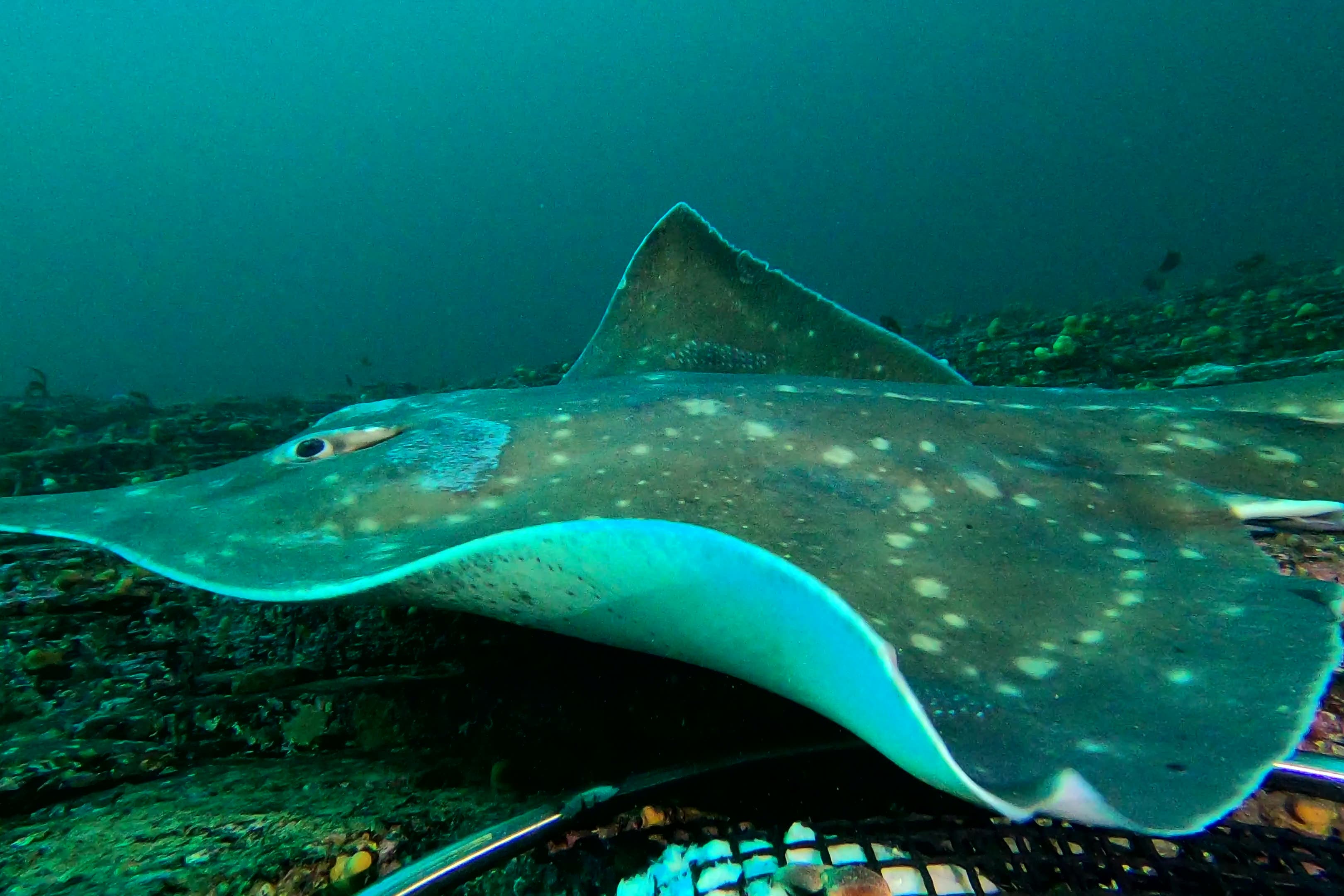Marine partnership aims to halt decline of critically endangered fish
The flapper skate, which is part of the shark family, often takes refuge in Orkney’s network of islands and skerries.

Your support helps us to tell the story
From reproductive rights to climate change to Big Tech, The Independent is on the ground when the story is developing. Whether it's investigating the financials of Elon Musk's pro-Trump PAC or producing our latest documentary, 'The A Word', which shines a light on the American women fighting for reproductive rights, we know how important it is to parse out the facts from the messaging.
At such a critical moment in US history, we need reporters on the ground. Your donation allows us to keep sending journalists to speak to both sides of the story.
The Independent is trusted by Americans across the entire political spectrum. And unlike many other quality news outlets, we choose not to lock Americans out of our reporting and analysis with paywalls. We believe quality journalism should be available to everyone, paid for by those who can afford it.
Your support makes all the difference.Population numbers of a critically endangered fish could be improved thanks to a new partnership between an electricity company and a marine conservation group.
The flapper skate, which is normally found in north-east Atlantic waters, is the largest known skate the world.
It belongs to the elasmobranch, or shark, family and can reach up to 2.5 metres when fully grown, with one caught in Scotland estimated to weigh more than 100kg.
Some of them take refuge in Orkney’s network of more than 70 islands and skerries, where their numbers are being monitored.
They are considered a critically endangered species by the International Union for Conservation of Nature due to population decline as a result of human activity.
In a bid to help them, Scottish electricity company SSEN Transmission has partnered with the Orkney Skate Trust (OST), a volunteer-led organisation that monitors flapper skates and tries to understand their biology and habitat more, in an effort to reverse their decline.
The OST, which was founded in 2010, uses a range of survey techniques from baited camera traps to underwater remotely operated vehicles to identify and monitor the Orkney skate population.
SSEN, which has subsea networks around Scotland’s coastline, has arranged to share its own marine data.
This includes 3D bathymetric and side-scan sonar data of the seabed collected as part of the route section for the proposed Orkney transmission connection.
The OST can then study and interpret the data to identify potential habitats that may be suitable for flapper skate, and where they may lay their eggs.
The marine organisation then uses a team of divers, monitoring equipment and traps to collect data to assist its conservation decisions.
The results are then shared with data group Seasearch Scotland to help provide a better understanding of the wider marine environment in Orkney.
Peter Watson, of SSEN Transmission, said: “With global leaders meeting to discuss the impacts of climate change on biodiversity and what action can be taken to halt biodiversity loss, partnerships such as this are a start in helping to deliver on this action.
“By researching, studying and sharing the results of these unique habitats with other marine stakeholders, we’re working to collaborate and play our part to preserve and enhance these unique areas and incredible species, right here in our waters.
“This partnership will truly help us understand how we can further work to improve biodiversity in the areas we operate, and we look forward to continuing to work with Orkney Skate Trust, which has already shared so much understanding regarding the critically endangered flapper skate population in Orkney.”
Daniel Wise, chairman of the OST, said: “Our network of citizen scientists uses a range of tools to raise the profile of this enigmatic skate, specialising in innovative non-invasive camera systems that documents skate in their natural habitat.
“It is only possible to achieve our aims through support by organisations like the SSEN Transmission, giving not only the financial support required to undertake surveys but the addition of technical knowhow and invaluable geophysical data from the seabed around Orkney.”